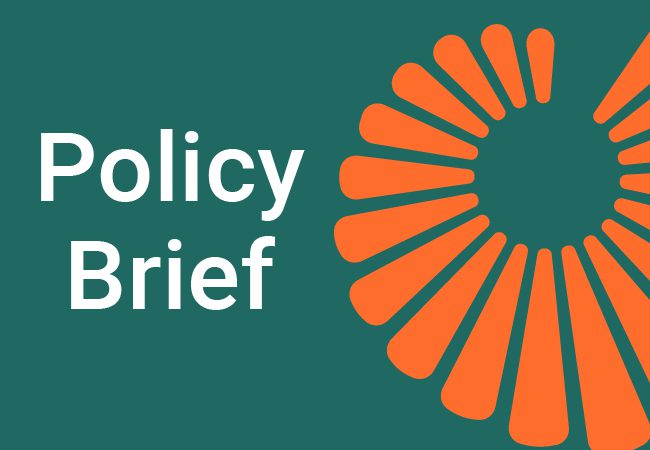Policy Brief: South Africa finds investment in Early Years is key

Investment in Early Years is one of the most important tools available to ensure that children all over the world benefit from formal schooling and, later in life, from improved health, social, and economic outcomes, to reduce the intergenerational transmission of poverty. To mark Africa Day on 25 May 2023, we looked at South Africa’s Public Expenditure and Institutional Review (PEIR) for Early Childhood Development (ECD), which was launched last month. ECD is the term used in South Africa to describe Early Years, which also encapsulates accompanying interventions such as family support, nutrition services and poverty alleviation strategies.
The Public Expenditure and Institutional Review
Launched jointly between South Africa’s Ministry of Basic Education and the World Bank, the expenditure review sought to inform the Department of Basic Education’s planning and programming to help ensure that all young children in South Africa have access to integrated and high quality ECD services. Taking a holistic approach, much in the way of the Irish First 5 Strategy, the PEIR presents new evidence on public expenditure on early learning, support for families, and early nutrition services to promote ECD. Based on this evidence, it identifies opportunities to increase and improve public expenditure to support further expansion of ECD services and quality improvements. This is combined with suggestions on how to strengthen inter-departmental and cross-government collaboration to ensure improved delivery of ECD services.
More Investment, Better Outcomes
The PEIR found that a substantial increase in funding for the ECD system is required if the Government of South Africa’s goals of reduced malnutrition in early childhood and improved early learning are to be achieved. Funding the ECD system adequately is challenging in an environment of limited fiscal resources and uncertainty over the future economic outlook. Therefore, additional investments in ECD should involve focusing on a set of key services with the highest expected returns, sequenced to ensure fiscal affordability, as well as targeting of additional funding to groups of children, currently at a disadvantage in terms of access to ECD services – in this case rural children, children in informal settlements and children from historically disadvantaged groups.
The importance of investment in ECD is outlined by South Africa’s Basic Education Minister, Matsie Motshekga:
‘Investing in ECD is one of the most important tools we have to reduce the acute impact of poverty and ensure better performance of our children in formal schooling. If we lay a good foundation early on, we can reduce a child’s likelihood to leave school prematurely, we can improve their performance in school, build the skills they will need to succeed in the workforce and, ultimately, reduce poverty and boost equality.’
Key Actions Identified
The PEIR also identified several actions that the South African government needs to take to improve quality in the ECD system, which involve staffing, inspection regimes, measuring child outcomes and Continuing Professional Development. Again, these are to be achieved with increased investment – and are certainly reminiscent of actions outlined in the Irish government’s First 5 Strategy.
Conclusion
The importance of investment in Early Years is something that is common to both Ireland and South Africa, and Early Childhood Ireland continues to call for further investment in Early Years in Ireland. The benefits are multi-faceted, with better quality outcomes for children as well as the society at large. You can read the complete South African Public Expenditure and Institutional Review on the World Bank website.
***
If you would like more information about Early Childhood Ireland’s work in calling for further investment in Ireland, or any of our other work, you can contact us at policy@earlychildhoodireland.ie.









